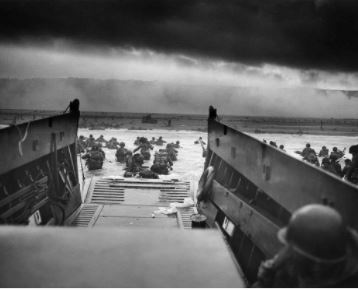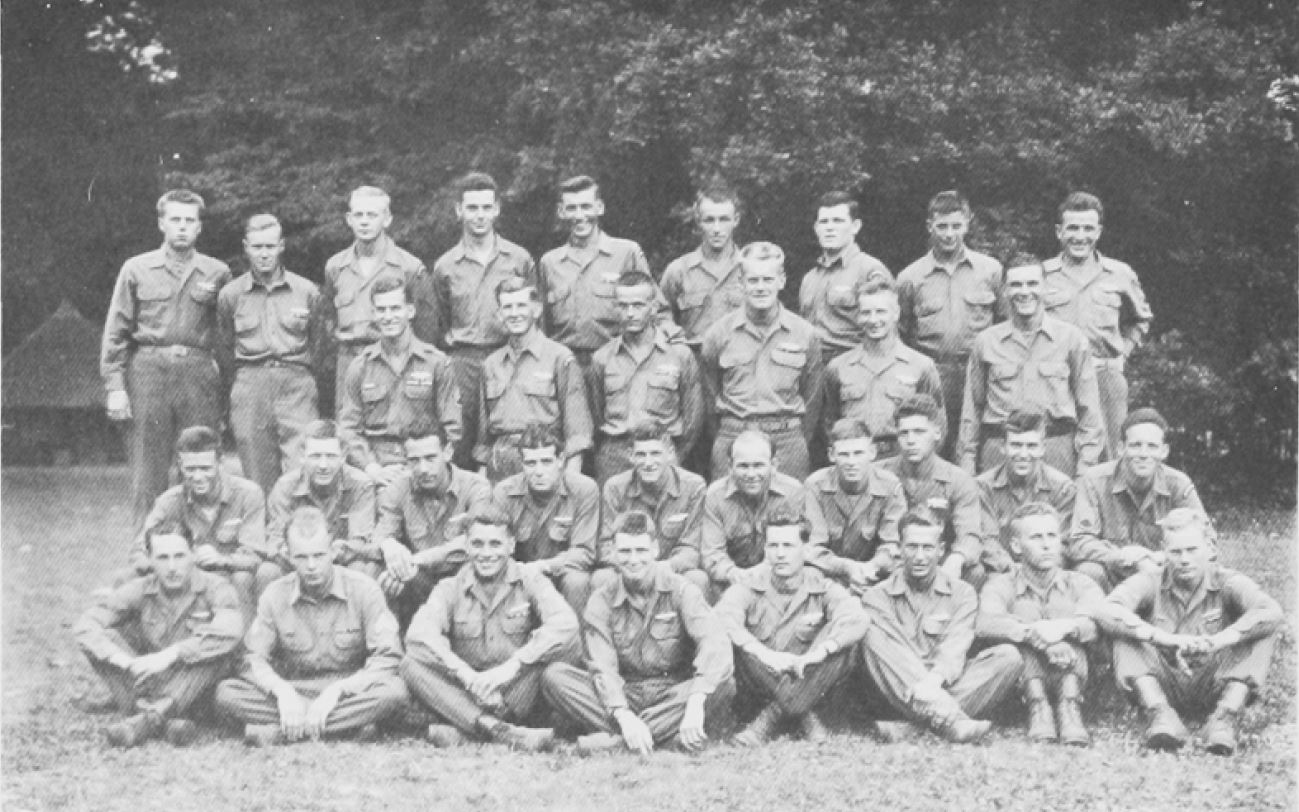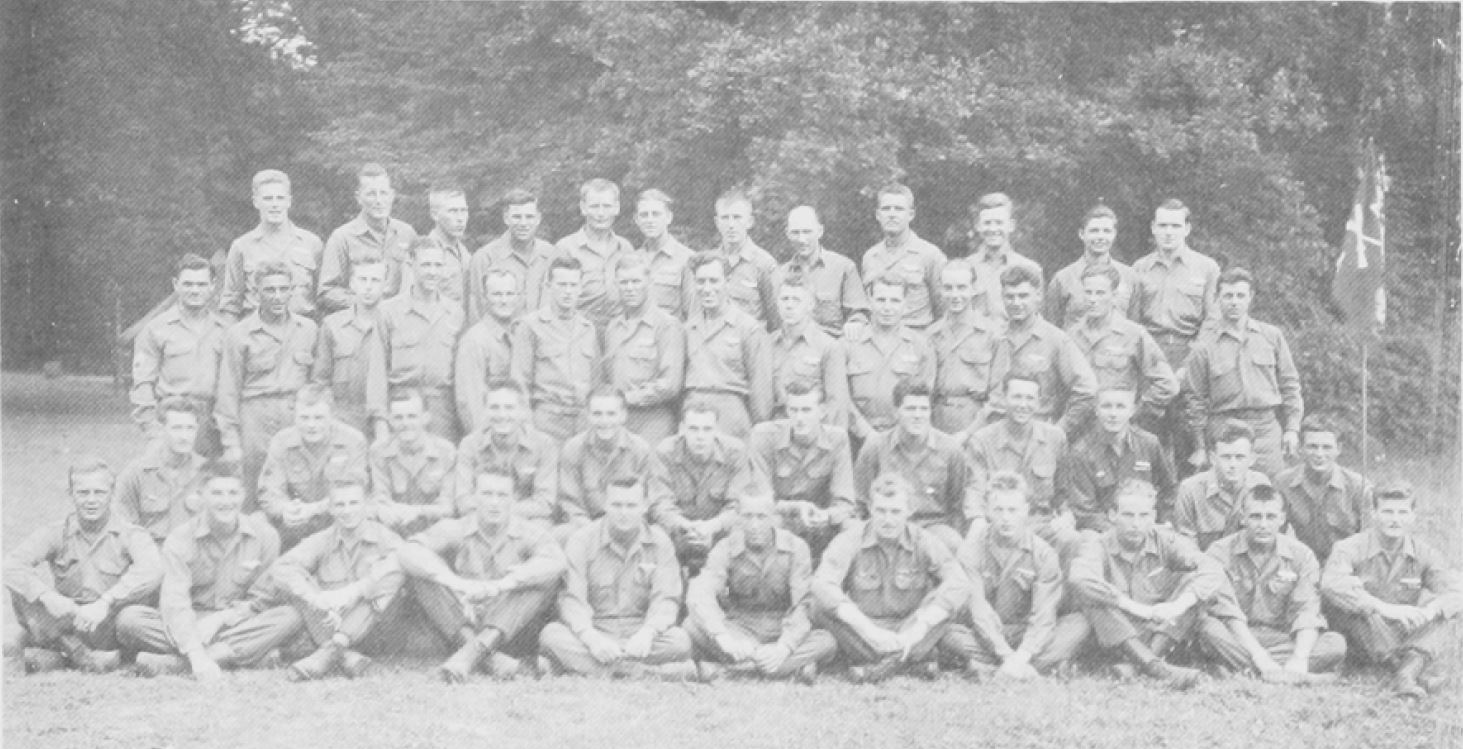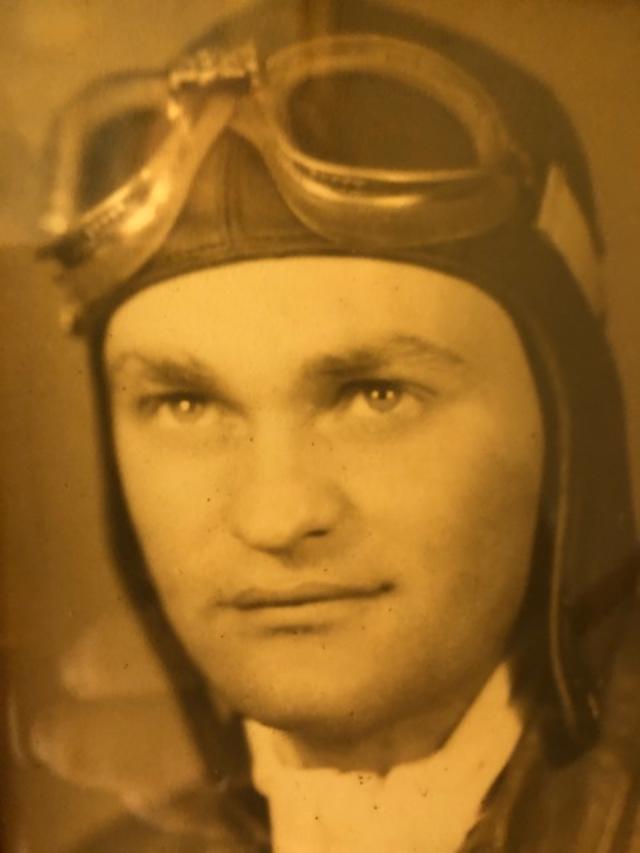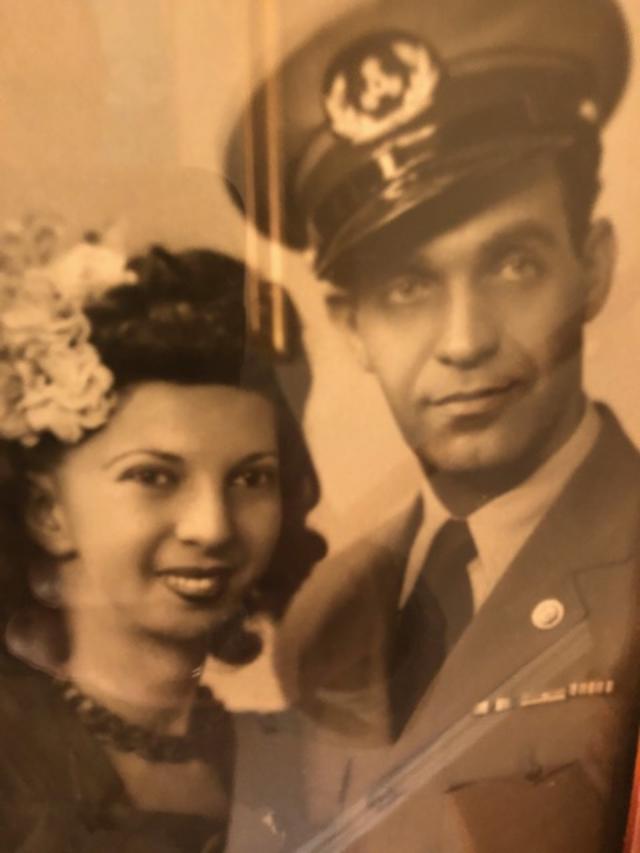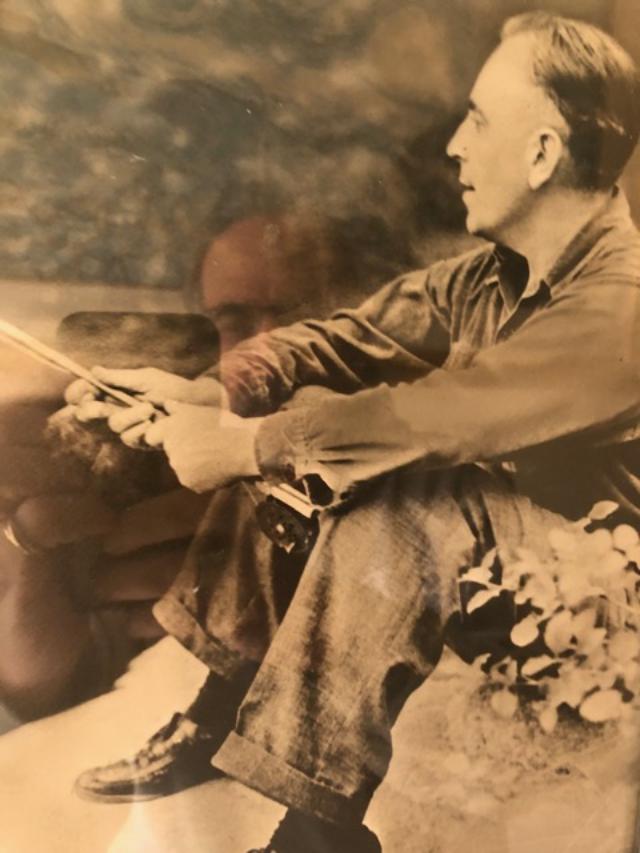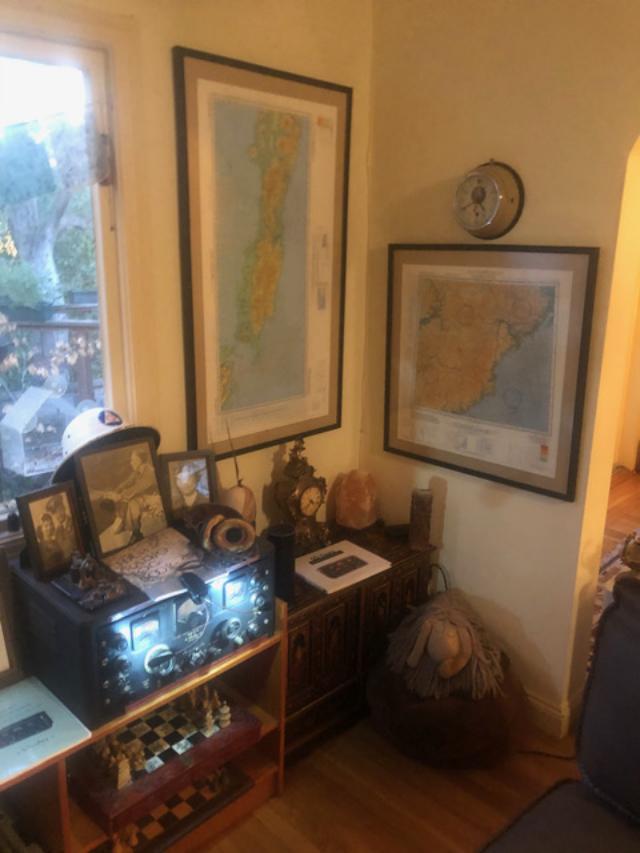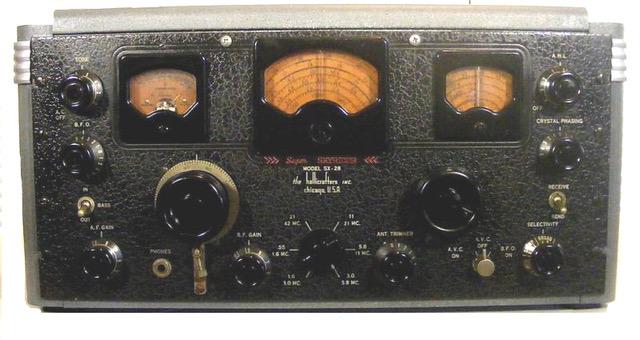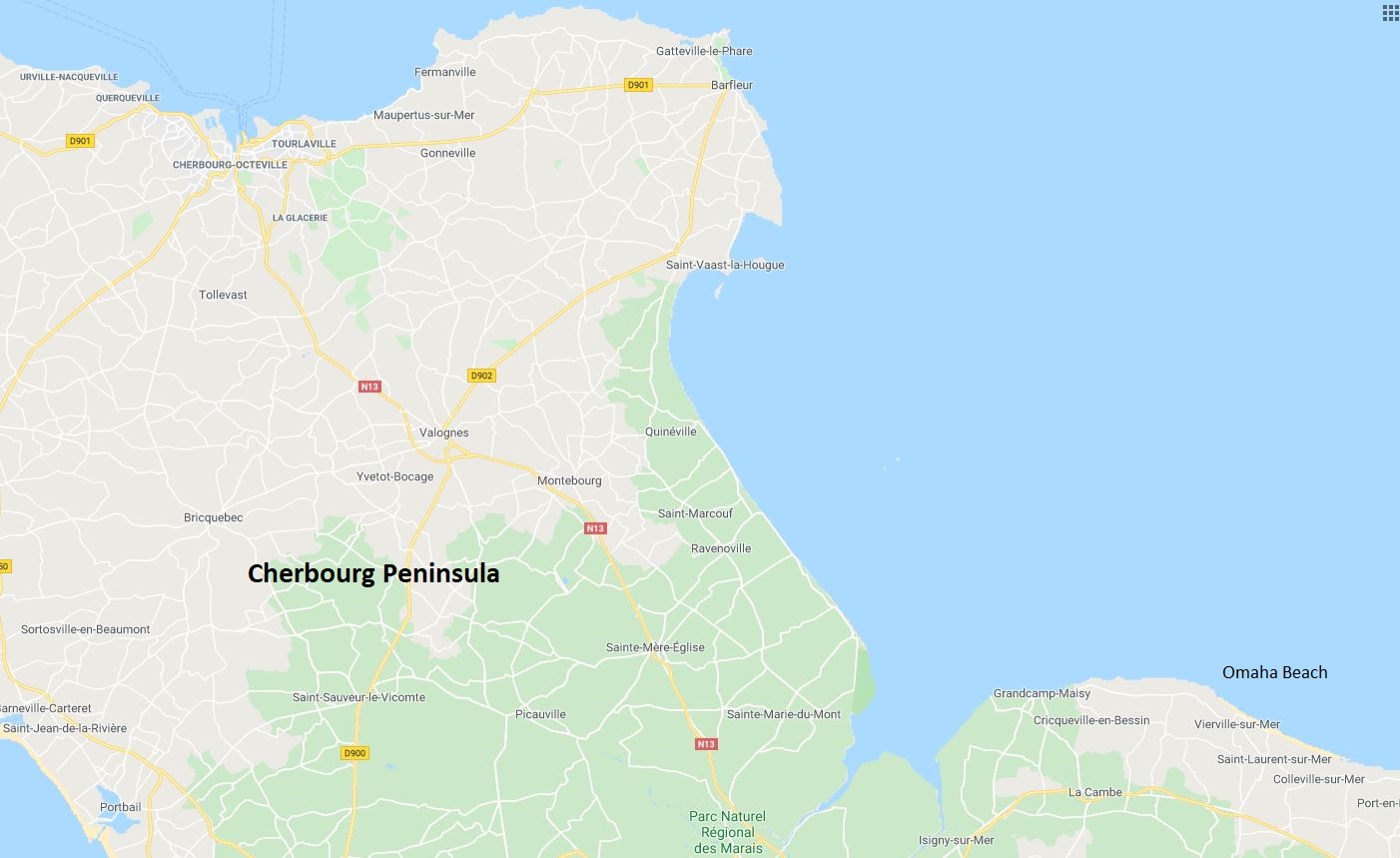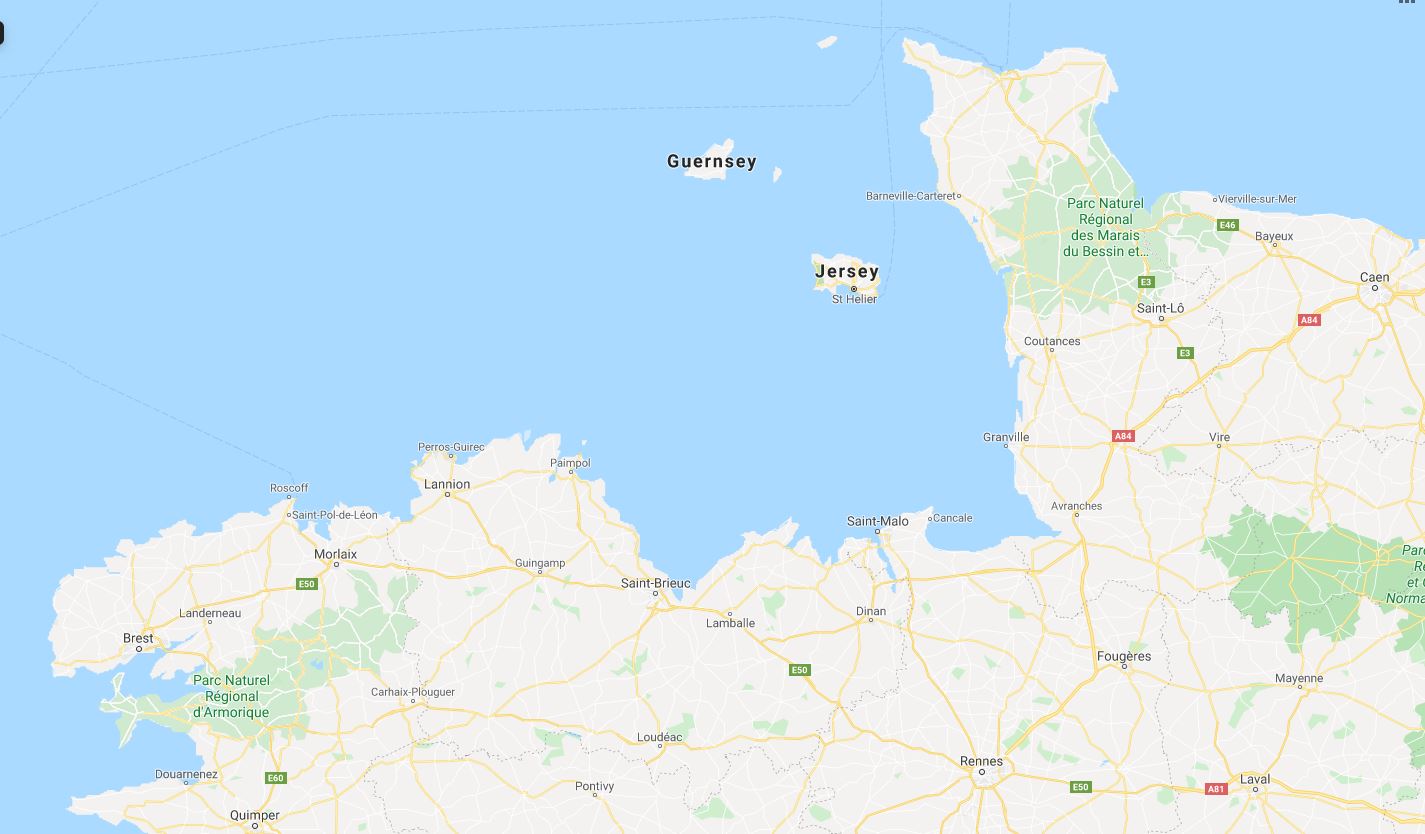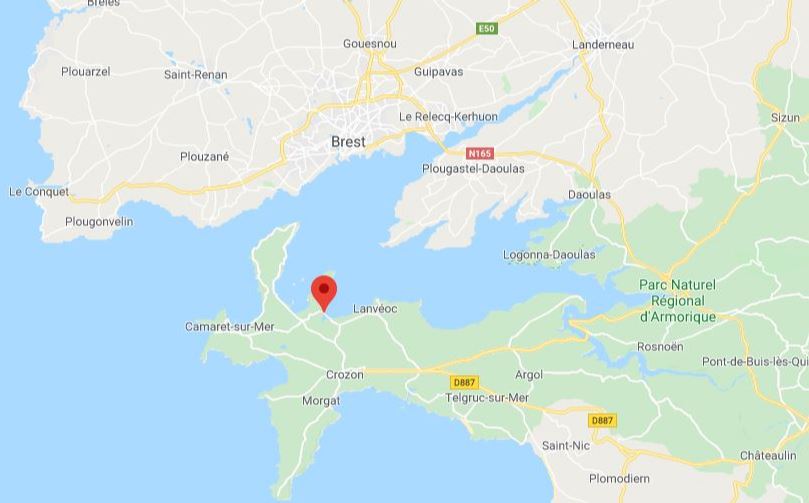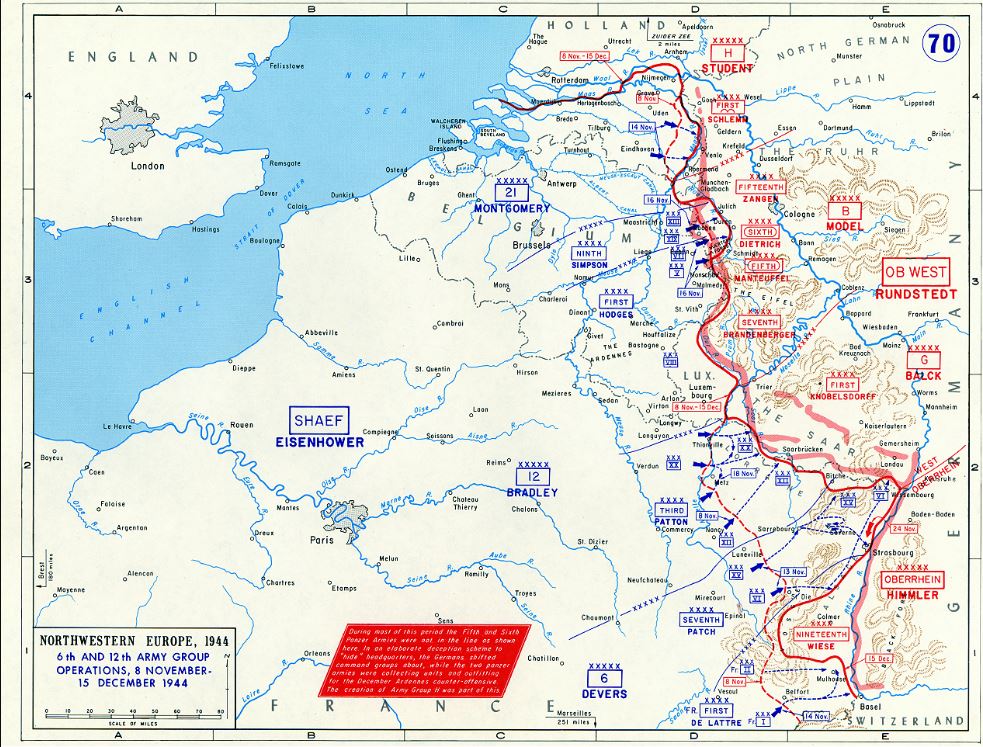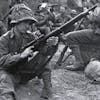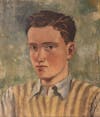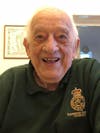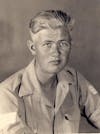56 Omaha PART 1 - D-Day Complete memoir. Private First Class Prince.
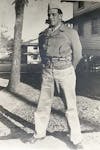
A US 2nd Rangers' memoir of D-Day, Normandy and beyond. Featuring Able Company. Overseas and Then Over the Top.
Overseas and Then Over the Top
Omaha Beach to the Battle of the Bulge and beyond - in multiple episodes. One man's complete and personal memoir of the entire period from leaving America for England and onto Germany.
The Cars Tanks and Airplanes of WW2
Feedback/reviews in Apple Podcasts - Thank you.
Men of the 16th Infantry Regiment, U.S. 1st Infantry Division wade ashore on Omaha Beach on the morning of June 6, 1944
2nd platoon
Able Company - after VE-Day in Dol Lukavice, Czechoslovakia
Victor Weiss
Victor Weiss' Uncle Lou and bride Ethel
Victor Weiss Snr
Receiver
Interested in Bill Cheall's book? Link here for more information.
Fighting Through from Dunkirk to Hamburg, hardback, paperback and Kindle etc.
Click on maps for Google Maps - scroll further for itinerary
Map of area
Conquet, Brest, Le Fret WW2 France
North Western Europe 1944 WWII illustrating the divisions between France and Germany
Itinerary - Omaha - 2nd Rangers - Second world War
England:
Bude
Titchfield
Folkestone (Beachburrow-House)
Braunton Camp
Swanage
Dorchester
France:
Vierville-sur-Mer
Columbieres
Isigny
Valognes
Beaumont-Hague
St. Jean De Daye
Mortain
Mayenne
Cherbourg
Kerlogué
Le Conquet
Trebabu
St Lo
Le Folgoet
Ploumouger,
Lochrist Battery
Argol
Crozon Peninsula (Le Fret)
Brest
Landernau
Lesneven
Belgium:
Arlon, Belgium
Luxembourg:
Esch, Luxembourg
Belgium:
Raeran, Belgium
Germany:
The Seigfried Line
Germeter (Hells Corner—Hurtgen Forest)
Bergstein (Hill 400)
Simmerath
Roetgen
Sohmidthof
Crossing of the Roer
Wollseifen
Kalterherberg
Dedenborn
Maychoss
FTP episode 56 Omaha – Overseas and Then Over the Top
Please note this section does not include a transcript of the book as an electronic copy was not available.
"The first platoon engaged the enemy with small arms for the first time that same evening when they spied an enemy patrol trying to infiltrate their position. They killed one Heiny and caused the rest to disperse and retreat. No damage was done to us.
"That night, we received another batch of new men. For the first time since the night we had entered Simmerath in Germany, the enemy unveiled his nebelwerfer. Two of our men were Wounded and one was killed when these rockets covered at our area. It was a tough break for these men to be so initiated on their very first action against the enemy.
"Snow fell on New Year’s Day and covered the countryside with a blanket of white. Enemy shelling had annoyed us several times during the day, but we didn’t sustain any casualties. That afternoon a “must” mission was handed down to the second platoon leader from the company. It was left to him to accomplish it.
"That evening at 1900, a patrol of eleven men headed by the second platoon leader glided into the open with their snow capes blending into the whiteness of the terrain. They trod noiselessly and silently. It gave one the impression of ghosts as they made their way forward. They had one set purpose in mind. That was to bring back one Jerry prisoner alive.
Hello again and another warm WW2 welcome to you. I’m Paul Cheall, son of second world war veteran Bill Cheall. The FT podcast features cracking first-hand memoirs and memories of war veterans – and much more.
I've been trying to get this episode out for the 6th of June which is, of course, the 76 th anniversary of D-Day. hopefully, I've been successful and I'm giving you something great to listen to whilst you contemplate going back to work after the lockdown. You're possibly you’re ready at work and enjoying driving on significantly quieter roads for a delightful change. Whatever, hunker down if you can and enjoy.
Oh boy – you’re in for a treat.
I’ve got a full memoir to start sharing with you today. It’s all about Able Company of the American 2nd Rangers landing on Omaha beach. I’m so chuffed to be sharing it with you because we’ve had so much on Gold beach in the past and I’ve been dying to do something different. And it’s a real cracker of a memoir – you just heard some extracts from it at the start. More on this to follow.
Before that I’ve got a smashing My Relative contribution to share with you from Victor Weisser.
Feedback First
Allen Duffin UK – I’ve had kind and sincere comments from Allen Duffin UK and a polite reminder that I keep mispronouncing the word Lieutenenat in relation to British officers. – Allen suggested it’s the equivalent of running your fingernails over a chalk board!
I’m pretty sure I’ve already done a hand hoch on this topic in episode 50 so I was particularly frustrated to realise I’d got it wrong yet again when Allen wrote in just a few days later. Obviously he’d not heard episode 50.
So
British Leftenant!!!!!!
American Lootenant!!!
It’s a bit ironic that in this episode I’ll be using the American variant of the pronunciation.
Anyway, at least I’ve been able to spell Mississippi since I was 10. And I do now know how to pronounce Nicht Scheisen, so it’s not all bad. Talking about learning stuff …
Elaina Brooks wrote in
Hi Mr. Cheall,
My son, Ben, and I just wanted to reach out to give thanks because you've been such a massive help with his WWII project! We've been doing some remote learning together since his school closed due to the COVID-19. We came across your web site while researching and have been using it as a reference ever since.
To pay it forward, my son wanted to suggest another page we came across that he thought would complement your resources. It's a great article on cars, tanks, and airplanes from WWII.
Please take care and best wishes,
Elaina & Ben Brooks
Elaina & Ben, thanks for writing in. Ben you’re a right little champion and I’ve now posted your very helpful link on the research page of the FT BOOk website – aaah! I bet a lot of people don’t know I have two web sites – there’s the FightingThrough.co.uk site and the FTP. There’s quite a lot of material on the book site that’s not on the podcast site, so take a shufty sometime, but use a desktop rather than smartphone.
Links in the show notes
page - http://www.fightingthrough.co.uk/war-links/4537029632
https://www.titlemax.com/articles/cars-tanks-airplanes-of-wwii/
Emily Wares wrote in to express her heartfelt thanks for the show and to buy Dad’s book.
Emily is from Warwickshire UK. She works for University Hospital Coventry and Warwickshire as a Referral to treatment specialist which means she’s on the first line in testing people for the virus if they come to hospital. And if you think you might have the virus, don’t hesitate to get a test you big softy – it doesn’t hurt.
So a massive shout out and thanks to Emily and all the fantastic staff at the University Hospital, Coventry and Warwickshire for the important work they’re doing at the moment fighting the war against Covid-19. Thanks for getting in touch Emily - it was lovely to hear from you – and I’ve donated the money from the book to the Sally Army – I hope that’s OK.
I’ve had a couple more Apple reviews from Brian and Bill G both from the US – many thanks chaps.
I’ve got a few more contacts to report on and I’lll pick those up next episode.
Right now I’ve got some MY RELATIVE tales to share with you
Hi. My name is Victor Weisser from Oakland, California. I’m a 75 year old avid amateur history buff with emphasis on WW2 and our American Civil War. I enjoy your podcasts very much. As so many of your listeners have commented, you pick subjects rich in both content and emotion. I want to complement you on your outstanding narration which adds considerably to the important information provided by your contributors. So thanks!!! We really appreciate the product of your fantastic efforts.
Here are accounts of the experiences my two uncles had during the war. They both survived and were often around my family hanging out with my folks and other adult family members or playing around with my older sister and me. Their names were Nat and Lou and they were about as different as apples and oranges. Lou was a big guy, quiet and reticent. Nat was shorter and wiry, quite outgoing and engaging. I attribute the differences in their personality at least partially due to their very different wartime experiences.
They went into the war in mid-1942 together, albeit to very different branches of the service.
The first uncle I will cover is Lou. Lou went into the US Merchant Marine. He worked in the engine rooms of the vessels he served on and spent most of his time working on the boilers and steam apparatus that powered these lumbering vessels through the perilous seas. Lou almost never talked about his wartime experiences. He always left the room when conversations regarding the war broke out among the adults. I never knew why because these stories always fascinated me.
One birthday weekend, when I was 12 years old (I was born Christmas Eve in 1944), Lou brought me a marvelous gift. It was a short wave radio receiver, but not one you could buy in a store. This was a very special and advanced Hallicrafters receiver made for the US Navy during the war. It still was as good as the best you could buy commercially during the mid 1950’s even though more than a decade had passed since it was manufactured. It started me out on my hobby as a HAM radio operator, something I kept up with until my college years. Lou helped me set it up, fix up an antenna on our rooftop and get started learning the fundamentals of using it. It was during this time he finally opened up about his wartime experience.
He told me the receiver was given to him while he was just about to leave the hospital where he spent almost two years recovering from wounds he had received on his last fateful voyage. It’s his experience during this voyage I will briefly recount to you now.
Lou had taken several voyages from the US to foreign ports- including at least two to England- before this last voyage. These trips were always filled with apprehension because of the U-boat menace and this was doubly so for engine room crew because their location on the lower level of the ship made it questionable as to whether they would be able to get out in time were the ship torpedoed. Several ships were sunk on the convoy trips he made prior to the last one, but Lou and his ships had come through unscathed.
On his final outbound voyage, his ship was sent in convoy to Murmansk, USSR. This was a dangerous voyage during the best of times due to the violent storms, bitter cold and somewhat unpredictable performance of the ships. And now, of course, they faced the danger of large wolfpacks of U-boats lurking in wait for their passage. Lou said he had made the Murmansk run one time before and it had been tough with several ships lost. But nothing prepared him for the ordeal he faced ahead.
One night as they grew closer to their destination the convoy was attacked by U-boats. Several of the transports and at least one tanker were hit and sunk, but the convoy crawled on with their minimal escort protection doing their best to shield them. Hours later, close to dawn, Lou’s freighter was hit by at least one torpedo. The torpedo hit right in the bulkhead separating the engine room from some other compartment and water started pouring into the engine room unimaginably fast. All Lou could remember, he said, was that he and his best friend were trying to climb up the ladder leading from the engine room to the next higher deck, but the water was coming up faster than they could climb. He had recurring nightmares of this the res of his life. He said that ladder seemed to go on forever, but he and his buddy just made it out in time and eventually found their way up to the top deck. He said that when they got to the top deck, the sea was only a couple of feet below them as the ship was sinking fast and it was an easy jump into the freezing water. He couldn’t have been in the water very long, he said, because you couldn’t survive more than a few minutes due to the cold. Not knowing how, he next found himself on the deck of another vessel wrapped in blankets. He never saw his buddy again. Lou must have been suffering from shock and exposure because he couldn’t recall much of anything else of the following day.
But the next night, this new ship Lou was on was itself torpedoed and sunk. He has no recollection of how he got off the ship or how he was rescued. As a result of this second sinking he had suffered two broken legs and some serious back injuries. He stayed in the USSR for several months until well enough to venture on another voyage back to the USA where he was sent to another hospital in which he stayed for more than a year recovering. It was upon his release which was soon after the war in Europe had ended that he had received the Hallicrafters receiver as a “momento” from the hospital staff to commemorate his recovery and his service.
Quite a story, huh? To be sunk twice on the same trip and survive is amazing! All of this I learned from Lou in bits and pieces while we fooled around with the radio every time he would visit us which was a couple of times a month. As I said, he was a very quiet man and you had to be patient and let him take his time to open up. I doubt he told much if any of this to anyone else in the family.
My Uncle Nat, on the other hand, was outgoing and exuberant. He talked about his wartime experiences freely and I looked up to him as a real hero- an air warrior! Nat taught me how to drive which I was very grateful for, and also how to smoke which I later learned to be less grateful. :-) His story is not as compelling as Lou’s, but still may interest you.
Nat joined the US Army Air Force. He was in pilot training school in Texas learning how to fly bombers, but washed out of the training due to what he said was a dispute with the officer leading the training squadron caused by Nat “stealing” the other officer’s girlfriend. In any event, Nat went on to be both a bombardier and navigator on B-29’s flying over Japan. He flew a large number of missions during the period when American air supremacy had severely reduced the effectiveness of Japan’s fighter pilot squadrons. Flak was their major concern, Nat said. That and the trackless Pacific Ocean. It was not uncommon for planes to simply disappear while flying to and from their targets, never to be seen again.
When I would ask Nat if he was scared during these missions, he said that he was always scared silly, but always performed his job so he wouldn’t let his crewmates down. He said the only time after the war he was similarly frightened was when he was a cop in New York City sent in to protect firemen fighting fires in Harlem during the riots which took place there I think in ’67. He said at least when he was flying over Japan he knew who was shooting at him and from where they were shooting and that wasn’t the case during the riots.
Nat gave me some very precious (to me) artifacts of his war when I was a very young boy. These were in his emergency kit which was given to air crew members before every flight. It included some absolutely exquisitely colored silk maps about 3’ x 4’ showing the sea and land over which they would travel in great detail. They were made of silk to survive getting wet. I pinned these up on my childhood bedroom walls. They were truly beautiful. Also included were emergency rations which looked and tasted like dog biscuits and a few small cans of emergency food which I never opened. It also had some Japanese money which was very exotic looking to me. Then there was this little cardboard box of dye which you were supposed to toss into the water and let spread out so planes passing overhead would see it and come rescue you. Hah!!! The kit included a 25 foot length of rough cord with a giant fish hook and some cardboard cutout “fish” which I think was supposed to be able to attract fish when tossed into the ocean. I sure wouldn’t want to have to rely on that for getting food!
But best of all was the shark repellant in a wax sealed box officially labelled “Shark Repellant” but with hand written lettering saying something like “Immediately dump this without opening. This stuff ATTRACTS SHARKS." I thought that was hysterically funny!
When I came home from college the first time for our family Thanksgiving dinner in November, I found that my beloved mother had tossed all these treasures and turned my bedroom into her sewing room! She had also disposed of my two cigar cases of wonderful WW2 airplane and warship collecting cards. Boy, was I miffed!
So, these are my uncles stories.
I have another one concerning my dad who was an air raid warden which is on the funny side.
I will proceed to tell you the story of “My Dad, the Air Raid Warden”.
My family lived in the Bronx, the northernmost borough of the five which comprise New York City. When the United States entered World War II following the attack on Pearl Harbor, my dad went to a recruiting depot the following week to enlist into the US Navy. He was rejected by the Navy because as a child he had a mild case of polio. Although to my child eyes he seemed to have suffered no ill effects, I did notice as I became a young adult that when he was tired he did have a slight limp in his walk. So, having been unable to enlist in the US Navy, he tried to enlist in the US Army. They also rejected him, as did the US Coast Guard. So, he began to do what he could in other ways to aid the war effort.
One of my dad’s proudest possessions was a certificate he was given because he had donated an amazing amount of blood throughout the war. He had it framed and kept it on a table in my parents' bedroom. I don’t remember how many pints of blood he had donated, but it must have been substantial to earn the certificate. Sadly, it disappeared after he died.
But this story is about his experience as an Air Raid Warden during their first preparedness drill. It was NOT his crowning achievement, but nonetheless earned a beloved place in our family lore.
After being rejected by the various branches of the armed services, my dad volunteered to become an air raid warden for the civil defense of New York City. After minimal training in the beginning of 1942, he was issued an old WWI helmet with a Civilian Defense Corps insignia on it and an armband. That was it. He was supposed to be available to be on duty “24/7”, but outside of training programs on first aid, how to evacuate people from buildings and direct them to shelters, and how to go about putting out incendiary bomb fires, there really wasn’t much to do so he also volunteered to be a “spotter”. Spotters were to go on the rooftops of their apartment buildings to keep watch on the skies for enemy planes. If he saw a strange plane, he was supposed to run downstairs to our apartment and call it in to headquarters. He was scheduled to do this for four hours a day six days per week, mostly in the evenings after work or at night. He never saw an enemy plane… nor did any other spotter.
But back to his role as an Air Raid Warden. I believe that it was in April 1942, after several planned and announced practice air raid drills were conducted, the first surprise air raid drill was held in New York City.
My dad was a sound sleeper. A VERY sound sleeper. When the surprise drill started, air raid warning sirens blared throughout the city. I remember hearing these very same sirens growing up in the late ’40’s and 50’s during the Cold War and believe me… they should have woken the dead.
But not my dad.
He slept peacefully through the event and never stirred a muscle. My mom, who could have acted as his very own personal early warning system, was away visiting relatives out on Long Island, so he slept like a lamb through the whole thing.
The next day he was chagrined to learn that he had completely missed the surprise drill. My father was a very patriotic man and to him this was the most embarrassing thing that could have possibly ever happened. He felt miserable.
But my dad was also a very lovable man and he said that at the next meeting of the wardens in his sector instead of being ridiculed, everyone thought it was hysterically funny that he had slept through the great event and nobody gave him a hard time. Except for himself.
I don’t think he ever fully forgave himself for completely missing the drill. He lived with this “shame" by making fun of himself at gatherings with family and friends when it came up. And it often did come up because after big dinners he would regularly fell asleep on the couch in our living room in the midst of incredibly loud conversations and arguments among the adults at the many gatherings my parents hosted. In hindsight, this showed me the power of having a both good sense of humor AND humility.
So that’s the story of "My Dad, the Air Raid Warden". He was a wonderful father, a role model for being a good man, and a real patriot.
But maybe he was not the best guy in the world to be an Air Raid Warden.
Be well and stay safe,
vic
Vic thanks you so much for these stories, I really appreciate the effort you took to put them together and write in. So I’ll say hello to you and hi to any of the Weiss family who are listening.
Support for the show
Just to remind you, I have decided to give any future donations I receive directly to worthy causes. Right now I’ve chosen the Salvation Army, basically because it was always one of Dad’s favourite charities, and that was because they were always helping the troops during the war. And today they continue to help those who need food, safe shelter, and much more.
And many thanks to Patrick Fennesey, Becky Baerg and Neil Browne for their recent donations to my Sally Army appeal. And Neil thanks for your kind comments about the show and for sharing it with all your family – that’s what I like to hear!
Listener if you’d like to donate to the show, there are links on the FTP home page. And I’m forwarding all donations to the Salvation army.
TR
Thanks to the diligence and thoughtfulness of listener Chris Hughes from Coventry, we’re about to be blessed with yet another amazing memoir. Chris dug it up from a digital archives web site and sent me the link to the American Command and General staff college library. Link
This is the story of 2nd Rangers Able Company of the US Army during the second world war.
I’m pretty sure it’s never been formally published because I can’t find reference to it anywhere except the link Chris gave me.
As I record it I haven’t had time to read it before so we’re kind of reading it together for the first time, and I’m really excited to see what comes out of it. I’ll be choosing a suitable breakpoint and when I put the episode out I won’t be any wiser than you as to what come next. Oooooh!
I actually have no idea right now how many episodes this memoir is going to take up but I’ll try to keep them rattling off at great frequency until it’s done.
So there yer go – Omaha Beach to the Battle of the Bulge and beyond - in multiple episodes. A privileged, private front row pew at the unveiling of some more, humbling, great unpublished history with the FTP! I should have been a war poet!
I should stress at this point that were talking about a full memoir here so of course there isn’t any actual fighting in this first episode because it deals with the lead up to D-Day. It covers our heroes’ journey from America across the Atlantic, to Scotland and onto England where they settle into their training and preparation, enjoying the warm hospitality of the Brits in various old country locations and mixing it with British Commandos and the Royal Navy boys. There are no bombs and bullets yet but a great deal of bull, banter and beer before they experience no small amount of drama to get the blood surging through their veins in preparation for the big shout, which will come in episode 2. It’s a true immersive story where you witness first hand how these brave American Rangers prepared for the assault on Hitler and his so-called Festung Europa – Fortress Europe!
What happened to PFC M Prince?! Does anybody know. Has anyone got a photo of him – do get in touch about this or indeed anything via the contact tab on the FTP.co.uk …
And for those who wondered if I really do know how to spell MISSISSIPPI from earlier on, it’s …
Before I get onto the actual memoir, just a bit of back story from the 2nd rangers own web site
The 2nd Ranger Infantry Battalion was activated on 1 April 1943 at Camp Forrest, Tennessee. The 2nd Rangers Battalion consisted of approximately 500 men. There were six line companies, A-F and a Battalion Headquarters Company. There were 65 men plus 3 officers in each company. The Rangers had to have the highest physical stamina and superior mental ability to perform as an outstanding fighting team in order to accomplish any given mission. They were skilfully trained and were proficient in all types of weapons, hand-to-hand combat, infantry tactics and many other skills necessary to be successful in war. In September 1943, the battalion moved to Fort Pierce, Florida. They received intensive amphibious training at the U.S. Navy Scouts and Raiders School. Later they moved to Camp Richey, the Army Intelligence School in using German weapons and German language.
On November 21, the battalion sailed for England. Early in December 1943, the Rangers arrived in Greenoch, Scotland for further training.
On D-Day, June 6, 1944, the 2nd and 5th Rangers,...referred to by some as "suicide squads"...had their baptism of fire on the beaches of Normandy at Pointe-du-Hoc and Omaha Beach.
The 2nd's mission was the toughest, most desperate, and dangerous mission of any of the D-Day assaulting units: three of its companies, D, E, and F, were to land seven kilometers west of Omaha Beach on a narrow strip of beach at the base of Pointe-du-Hoc, scale the 120-foot sheer cliffs under heavy enemy fire, cross the mined and obstacled top, and destroy six cannon located in concrete casemates. Noted Lieutenant General Omar Bradley of Lieutenant Colonel Rudder, "Never has any commander been given a more desperate mission."
The remainder of the Ranger force, companies A, B & C, would wait offshore under the command of newly promoted Lieutenant Colonel Max Schneider. If the assault force under Rudder took possession of Pointe-du-Hoc, the code phrase "Praise the Lord" would be transmitted and the force under Schneider’s force would move to the Pointe to reinforce the position.
If the message was not received by 0700, Schneider's force would move to Omaha Beach, through the Vierville Draw, and proceed overland to assist their fellow Rangers at the Pointe.
This information came from a web site dedicated to Able company and the link’s in the show notes if you want to read more of those times.
http://2ndrangersableco.org/page2.html
This is one man’s account of those events, Private First Class M Prince
WW2 and WWII, World War II and more
Start
End
What happened to PFC M Prince?! Does anybody know.
And for those who wondered if I really do know how to spell MISSISSIPPI from earlier on, it’s …
Thank you so very much for your support and for making the time to listen to me.
And please - write, like, rate, review or share the show - howsoever it pleases you. Above all – enjoy. Please do hear me next time.
There’s a PS coming up about
First, news of the Next episode
http://www.Fightingthroughpodcast.co.uk
WW2 WWII
Featured Episodes
If you're going to binge, best start at No 1, Dunkirk, the most popular episode of all. Welcome! Paul.
PS. Just swipe left to browse if you're on mobile.










